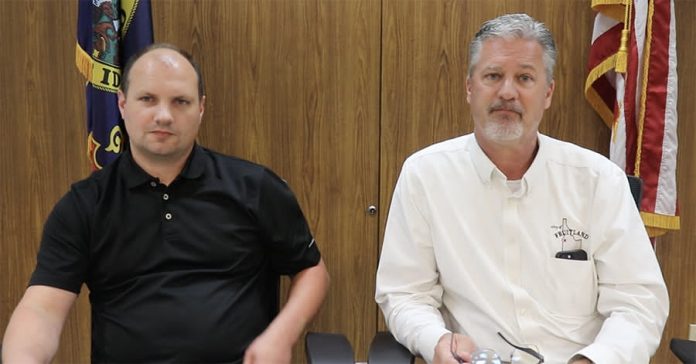The Fruitland City Council has placed a water & sewer bond on the May 20th ballot. These bonds will fund important treatment facility improvements to both the water and wastewater treatment facilities. These improvement projects will help meet the growing demand for water and sewer capacity, while also aiding in the compliance of state water and wastewater regulations.
Part of every city’s long-term plan includes preparing for the future and meeting the needs of its residents. The Fruitland City Council has identified commercial growth as one of its goals for the future. Attracting businesses to Fruitland to compliment the residential growth we’ve experienced is a high priority. To accomplish this, the city needs to be able to provide adequate water and wastewater services to facilitate future projects. Not only will these improvements mitigate the risk of not being able to meet future demands, but it will also improve our infrastructure to meet Idaho Department of Environmental Quality system requirements and fire protection standards. The proposed improvements will ensure Fruitland is a resilient and sustainable community for years to come.
Things to know:
Purpose: The water bond funds will improve the water treatment facility by expanding the intake gallery in the Payette River, adding a pretreatment contact clarifier, and expansion of the filtration, disinfection, and backwash systems.
The wastewater bond will improve the treatment facility by adding additional filtration and disinfection infrastructure, addition of an equalization tank, and a backup generator.
Bond Amount: Water- Not to exceed $17,421,000 to improve water quality and capacity.
Wastewater- Not to exceed $7,899,000 to improve treatment and disinfection processes.
Bond: A water revenue bond is like a loan that a city or municipality takes out to pay for improvements or expansions to its water or wastewater system. Bonds are similar to mortgages for homes. The city sells them to finance construction of improvements and repays the debt with revenues collected from water and sewer bills. Current users are not solely responsible for repaying the bonds, as any new connections automatically begin to pay for the bonds with their newly created water/sewer bills. Therefore, new growth pays for its share through water/sewer bills and one-time capacity fees.
Financial Impact: In order to pay the bond payments and maintain solvency in the water and sewer funds, we will need to adjust rates. The water bond will increase the base water rate by approximately $24.46 per month. The sewer bond will increase the base sewer rate by approximately $11.65 per month. The typical monthly residential water/sewer bill base rate is currently $84.30. With the increase to pay the bond payments, the new base rate will be approximately $120.41 per month.
Environmental Compliance: Meeting the increasingly strict environmental regulations and maintaining quality drinking water are of high importance to the city.
Who Can Vote? Registered voters who live inside Fruitland City Limits are eligible to vote on May 20th at your normal polling location.
Frequently Asked Questions
Q: Will voting for the bond raise my taxes?
A: No, water and sewer bonds are paid back strictly from water and sewer rates. They are in no way related to property tax revenues.
Q: What percentage of the vote is required to pass the bond measure on May 20th?
A: The bond requires approval from at least fifty percent plus one (50%+ 1 vote) or a simple majority of voter turnout.
Q: How can residents participate in the bond election process?
A: Residents can participate by educating themselves about the proposed projects, ask city staff for clarification of any questions, and ultimately by voting in the election.
Q: What happens if the bond fails?
A: If it is determined by a judge that the improvements are required for health and safety, the judicial confirmation process can authorize the city to borrow the funds for improvements.
Q: Who oversees the management of bond funds?
A: Bond funds are overseen by the City’s Treasurer, the Mayor and City Council, the City’s Bond Counsel, and the City’s Auditor. Bond funds can only be used for approved construction projects.
Q: Why are the current treatment facilities not able to provide more capacity?
A: The current treatment facilities have performed well, but due to increased demand, especially during peak usage times irrigation during summer months), substantial growth, and the increase in organics in the Payette River, the treatment facilities require upgrades to produce more treatment capacity and maintain permit standards.

























